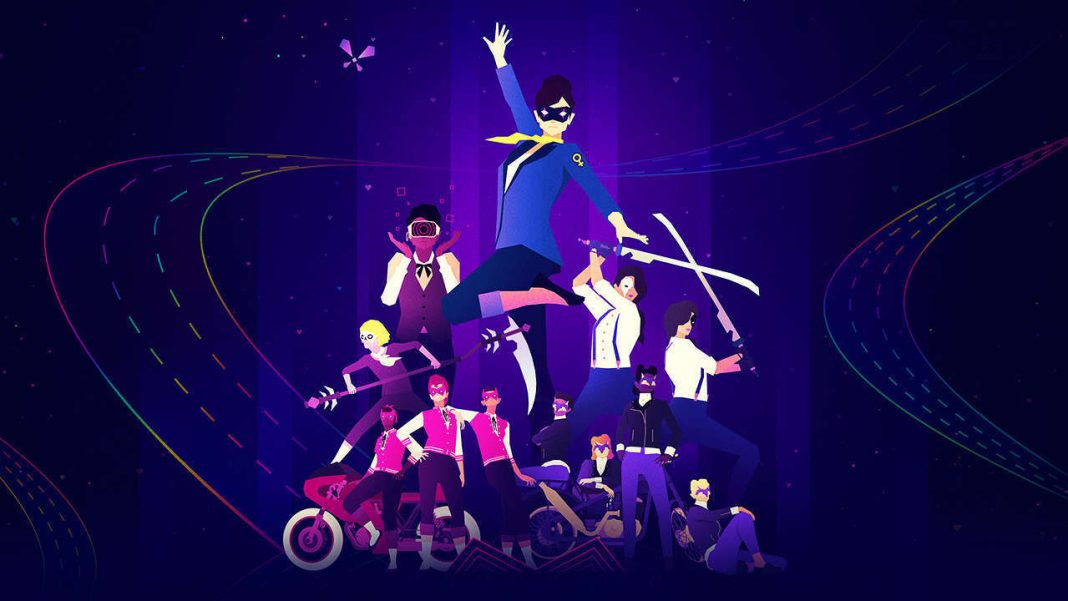Sayonara Wild Hearts marks its 5th anniversary today, September 19, 2024, and we dive into what makes returning to this game and its music so special.
As the years go by, my fondness for Sayonara Wild Hearts only grows. This “pop album video game” from Simogo, who also made Year Walk and 2024’s Lorelei and the Laser Eyes, feels like an everlasting arcade game. The game’s short levels and challenging scoring drew me in back in 2019, and I still find myself coming back. It’s amazing how each playthrough feels even more meaningful.
Sayonara Wild Hearts has stayed on my PC since it first came out. Initially, I’d play a level or two when I needed a break from other games. Over time, it became my favorite way to relax or clear my mind. Sometimes, I play the entire game in about an hour, but I always end my sessions with the last two levels for a burst of joy.
What makes the game special is how each level feels unique and easy to enjoy. Simogo worked hard to make it simple yet fun. You just move the main character and use one button to attack, dodge, or snap your fingers. In just 20 minutes, you can fight a three-headed robot wolf, drive a cool car on a dreamy road, and even play a shooting game in someone’s VR headset.
Fans really love the emotions that come from these levels, the music, and the story about a woman dealing with heartbreak. I know exactly which Dancing Devil shows up during “Begin Again.” I can tell you when “A Place I Don’t Know” starts even with the sound off. The music can either make you feel sad or lift your spirits.
Some games are so unique and unforgettable that you can’t abandon them, even years later. On New Year’s Eve 2019, I played Sayonara Wild Hearts again after a breakup, which has become a yearly tradition. Playing it last week to prepare for this article, I reflected on my growth and dating experiences since then. That session felt important once more.
The whole Annapurna Interactive team, which publishes Sayonara Wild Hearts and other games, resigned recently. Bloomberg reported that internal disagreements about the division’s future led to this. Annapurna Interactive’s president Nathan Gary and other top staff left.
Megan Ellison, Annapurna’s founder, said they are focusing on supporting their partners during this change. A spokesperson told IGN that the company will continue its existing projects while finding new staff. Some developers have shared updates on their work, like Wanderstop, Mixtape, and We Kill Monsters, saying that their partnerships are still strong.
At the moment, Simogo hasn’t said what their plans are. They announced a publishing deal with Annapurna in 2020 for future projects, including Lorelei and the Laser Eyes. With Sayonara Wild Hearts no longer available on Apple Arcade as of August 15th, the future is uncertain. Even if Annapurna rebuilds their gaming team, the people who made these great games together won’t be there.
Simogo’s games have always been a big part of Annapurna’s success. Sayonara Wild Hearts is like a mix of all the different kinds of games Annapurna publishes, such as If Found…, Outer Wilds, Kentucky Route Zero, What Remains of Edith Finch, and Neon White.
The lyrics in Sayonara Wild Hearts often talk about the memories we leave behind. The Fading Memories cassette tape is like a time capsule of demos and unused tracks from the game’s musicians. Games like Open Roads, Florence, and Wattam show a different side of Annapurna, especially after a 2022 investigation by People Make Games found that the company didn’t act on reports of toxic work environments.
Simogo is known for trying new things with each project. They don’t use past lessons for sequels but instead come up with new ideas and looks. It’s hard to guess what their next game will be like, just as it’s hard to know what new feelings a replay of Sayonara Wild Hearts might bring.
Next time, I might skip the collectible in “Doki Doki Rush” and take a different path just to see what’s there. Maybe I’ll ignore my score and just enjoy the music. No matter how much time passes, a story about heartbreak is always relatable, especially one that reminds us that there’s always a chance to start over.

